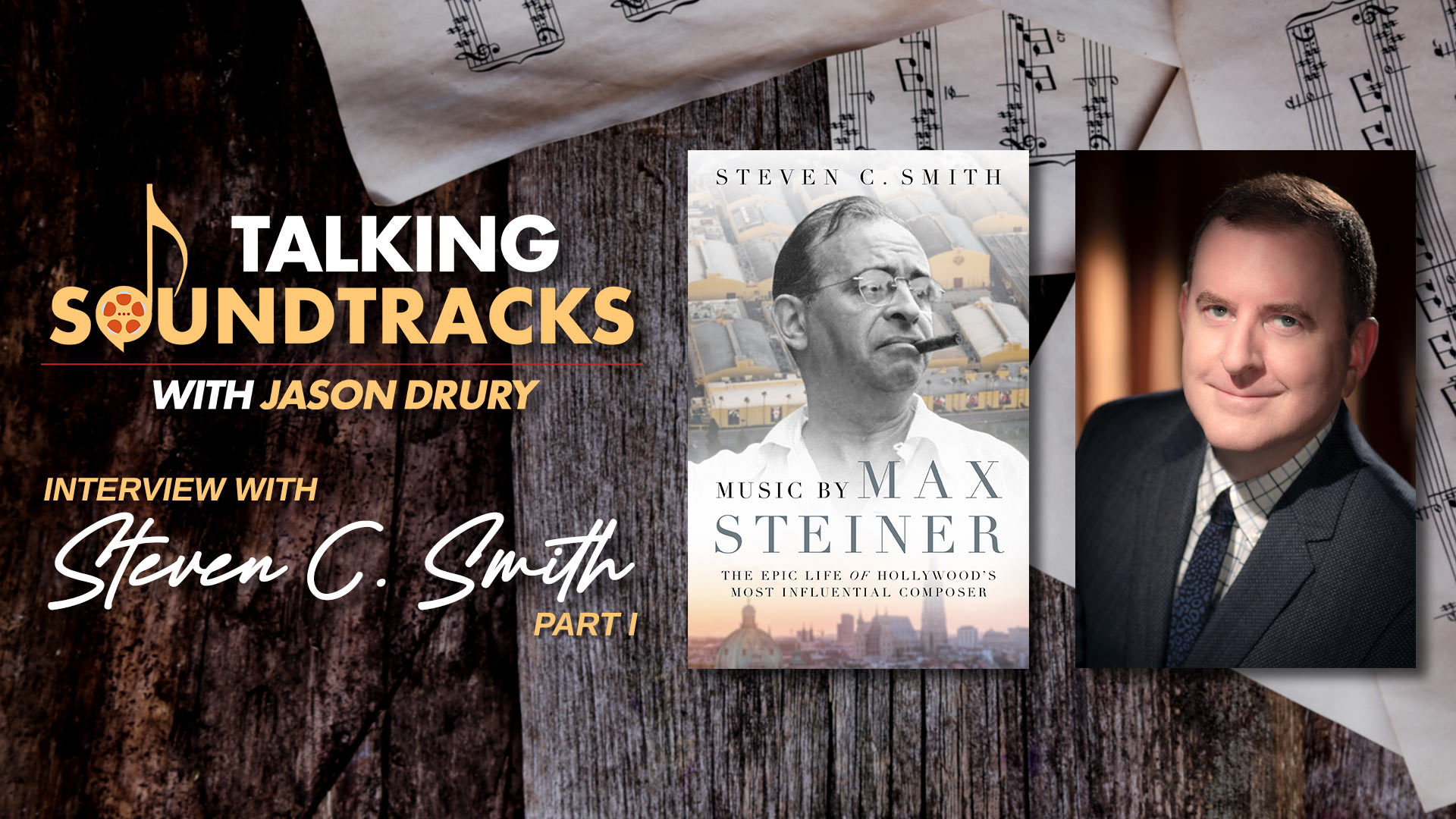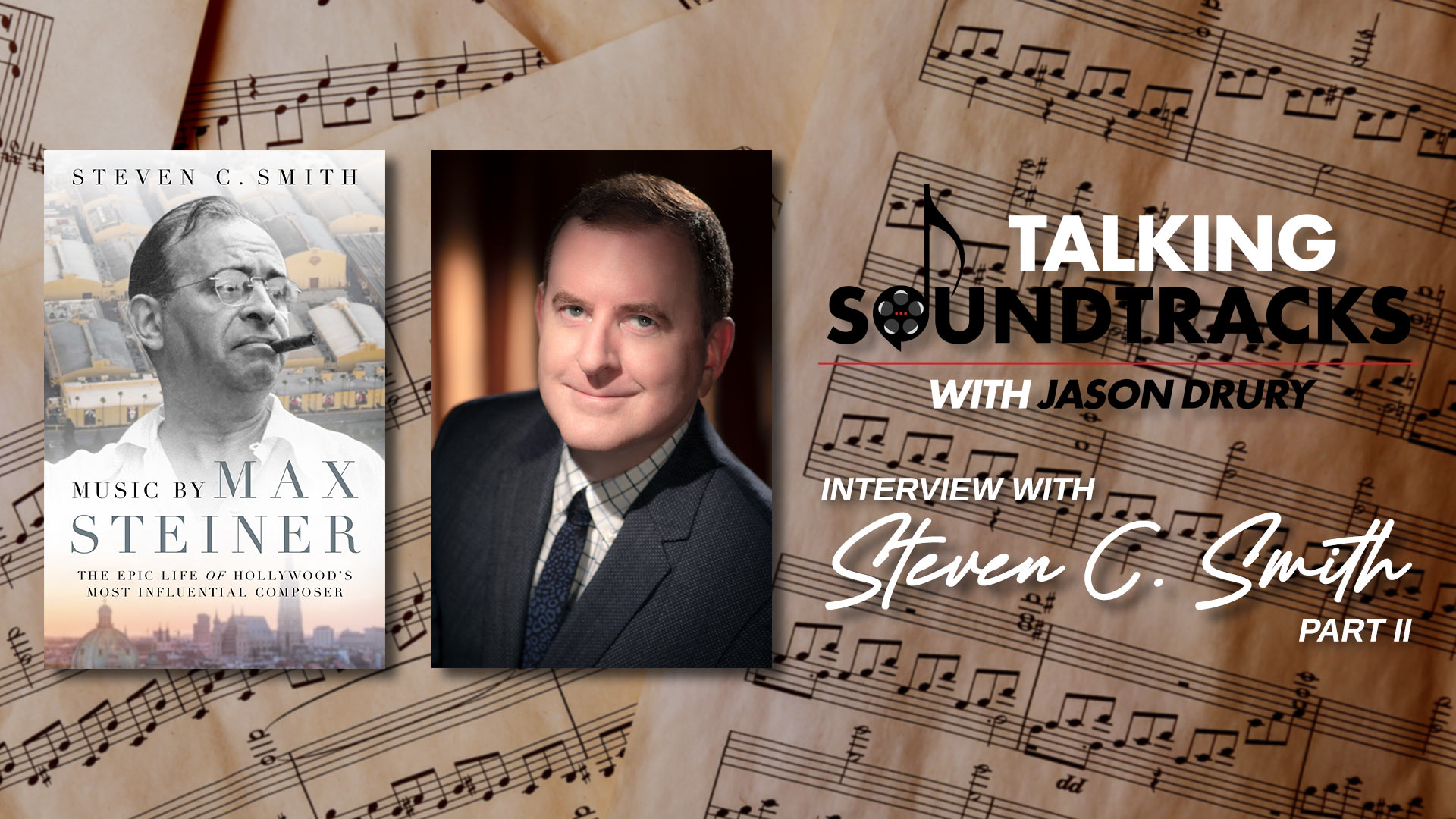 |
|
|
|
|
|
|
|
 |
 |
 |
 |
|
|
 |
 |
 |
|
|
|
|
|
|
 |
May I recommend a traditional serving of fish & chips (wrapped in newspaper, malt vinegar) to go with the viewing? 
Oh, God, yes. Also a reasonable shake of the salt cellar wouldn't go amiss.
Cheers,
Stephen x
|
|
|
|
|
 |
I watched The Informer which won Steiner his first Oscar. It isn’t a happy movie. Really depressing so it wasn’t full of lovely, gorgeous, romantic music. Smith’s analysis helped me tune into Steiner’s composition. I could easily hear Gypo’s and Katie’s themes. However, I would not have really understood the 4-coin motif or the dripping water music or other parts without Smith’s insights. I did hear a lot of mickey-mousing music in places. Smith does indicate that Steiner would not be “so overt….so heavy-handed in his mickey-mousing,” in his future scores. I also felt that some of his danger musical pieces were predecessors for future composers. I still hear similar danger pieces in more modern TV and movie scores. Imitation is flattery.
You are absolutely correct on this. Firstly, Steven's insights are a great help towards understanding the scores, the themes, and yes, the mickey-mousing. We all know he did that, so let's embrace it. But Steiner was not the only offender in this category, it's a shame that he is always associated with it. I could pick a random film from my shelf and find some mickey-mousing in it (OK, probably not Herrmann, let's say there would be an element of selection in my randomness). I've found one - Miklos Rozsa's THE THIEF OF BAGDAD (1940) score, when accompanying Sabu running up and down a flight of stairs.
Steven does a great job in settling the 'mickey-mousing' debate and Steiner's part in it. x
 |
|
|
|
|
|
|
|
|
|
|
|
|
|
|
|
|
|
|
|
|
|
|
|
|
|
|
|
|
|
 |
Absolutely. And Steiner has commented on this on a number of occasions, too. He says is slightly differently, though, talking about the characters' different tempi and rhythms (Smith, pp.119-121) as well as the pitch of actors voices and the available spaces in the audio spectrum whereby the composer can place the pitch of the music to match the scene (Smith, pp.217-8). If the composer can do that successfully throughout, then you have a great film score.
|
|
|
|
|
 |
 |
 |
Posted: |
Jan 18, 2022 - 2:31 PM
|
|
|
|
By: |
Erik Woods
(Member)
|
CINEMATIC SOUND RADIO PODCAST
NEW EPISODE! TALKING SOUNDTRACKS: INTERVIEW WITH STEVEN C. SMITH PART 1
http://www.cinematicsound.net/talking-soundtracks-interview-steven-c-smith-part-1/

During a seven-decade career that spanned from 19th century Vienna to the golden age of Hollywood, Max Steiner did more than any other composer to help introduce and establish the language of film music.
In July 2020, the book MUSIC BY MAX STEINER: THE EPIC LIFE OF HOLLYWOOD’S MOST INFLUENTIAL COMPOSER was published interweaving the dramatic incidents of Steiner’s personal life with a highly accessible exploration of his composing methods and experiences.
In June 2021, for TALKING SOUNDTRACKS, Jason Drury talks to author, four-time Emmy nominated journalist, writer, and producer of over 200 documentaries about music and cinema, Steven C. Smith, via Zoom at his home in Southern California.
In part one of this two-part interview, Smith talks about the genesis of the book and delves into the musical career of Max Steiner. You’ll also hear selections from such Steiner scores as KING KONG, GONE WITH THE WIND, THE MOST DANGEROUS GAME, THE TREASURE OF THE SIERRA MADRE, NOW VOYAGER, and much more.
If you are not a fan already a fan of Max Steiner’s, I assure you that after listening to this interview, you soon will be.
Enjoy.
-Erik-
 |
|
|
|
|
|
|
|
|
|
|
|
|
|
|
|
|
|
|
|
|
|
|
|
|
|
 |
 |
 |
Posted: |
Jan 23, 2022 - 8:16 PM
|
|
|
|
By: |
Erik Woods
(Member)
|
CINEMATIC SOUND RADIO PODCAST
NEW EPISODE! TALKING SOUNDTRACKS: INTERVIEW WITH STEVEN C. SMITH PART 2
http://www.cinematicsound.net/talking-soundtracks-interview-steven-c-smith-part-2/

In part one of this two-part edition, they talked about how the book came about, and begin to delve into the musical career of Max Steiner.
In part two, Smith talks about Steiner’s music for the films of Humphrey Bogart and Errol Flynn, his friendship with Victor Young, and at the twilight of his career, an unexpected hit in the pop charts. You’ll also hear musical selections from such films as CASABLANCA, THE BIG SLEEP, THE ADVENTURES OF DON JUAN, THE ADVENTURES OF MARK TWAIN, THE SEARCHERS, KING KONG and more.
Enjoy.
-Erik-
|
|
|
 |
 |
 |
|
|
 |
 |
 |
| |
|
|
|
 |
|
 |
|
|
|


